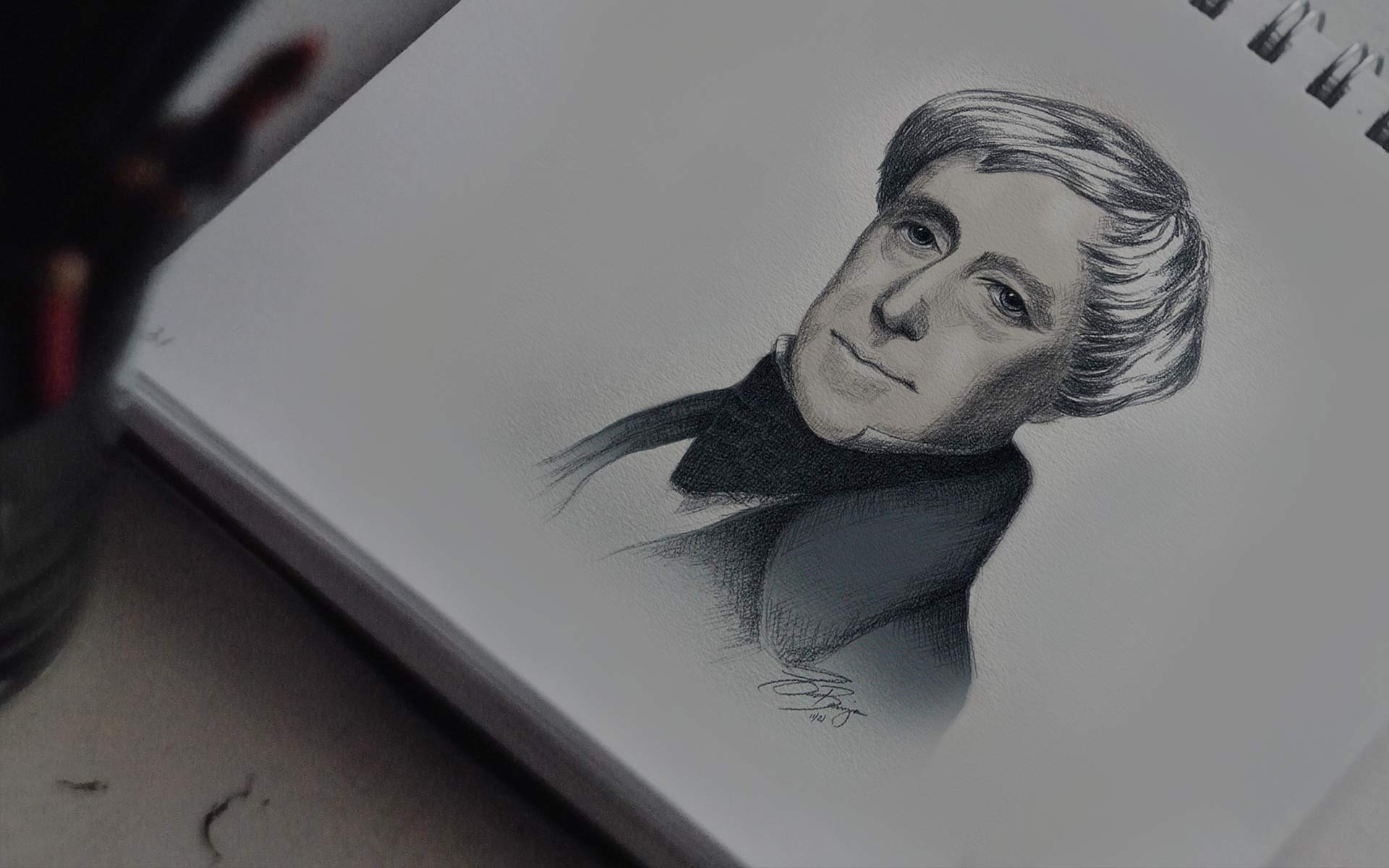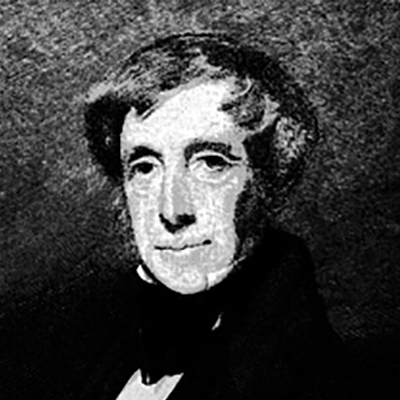
The History Clement C. Moore
The idea of Christmas did not begin with Clement Clarke Moore, the author of “Twas the Night Before Christmas,” but in “a wink of an eye” his poem took young America by storm. His spirited tale of a late night visit by jolly St. Nick and his eight tiny reindeer captured the hope, happiness, and love expressed during the holiday season.
Who Was Clement Clarke Moore?

Clement Clarke Moore was born into a prominent family on July 15, 1779, in New York City. His father Benjamin Moore, Episcopal Bishop of New York, served for a dozen years as president of Columbia University. The Moore family owned a large tract of land stretching from current-day Nineteenth Street to Twenty-Fourth Street and from Eighth to Tenth Avenue. Today, this area makes up the Chelsea neighborhood. Bishop Moore lived a full and illustrious life. One highlight was giving Alexander Hamilton last communion as he lay dying after his infamous duel with Aaron Burr.
After graduating from Columbia in 1798, Moore took over the far-reaching pastoral estate, eventually donating the land to build the General Theological Seminary of the Episcopal Church and St. Peter’s Episcopal Church, Chelsea. He later served as a literature and languages professor at the Seminary from 1821 to 1850.
Like many scholars of his era, Moore published widely in politics, languages, poetry, biography, and religion.
Moore lived a long and accomplished life, not only as a writer and thinker, but in helping the less fortunate. Many of his donations of land and money went toward creating lasting legacies that would impact the city for more than a century. A kind man, Moore’s friend recounted that he radiated good cheer.
Moore died in Newport, Rhode Island, in 1863. A remarkable figure of early American history, Moore was born while the nation fought for independence and died over eight decades later as the country battled to save itself.

The Origin of Twas the Night…
Moore’s transformation from country squire and gentleman scholar to American icon is shrouded in mystery. To understand where “Twas the Night Before Christmas” originated, we have to go back in time to that wintery evening in 1822.
The journey arose from humble origins. Clement’s wife Elizabeth sent him to the market to pick up a turkey, one of many the family donated to the less fortunate. That wintery trip and the thought of his six children playing in front of the fireplace sparked a flame in his soul. The writer hurried off to his study, filled with visions of a magical Christmas Eve dancing in his head! “His eyes—how they twinkled…”
A year later, on December 23, 1823, editor Orville Holley of the upstate New York newspaper The Troy Sentinel anonymously published “A Visit from St. Nicholas.” The editor never admitted where he got the holiday poem, but its publication lit a fuse that would soon revolutionize Christmas. The paper kept printing it year after year. Later, the poem appeared in other books, magazines, and newspapers. Readers wondered what had arose such a clatter.
Eventually the story leaked that Clement Moore had written the poem. Harriet Butler, a family friend, happened to be visiting the Chelsea estate a year earlier and heard the poem.
She copied it down in her notebook and eventually passed it on to Holley. Yet, Moore still resisted admitting that he wrote the poem. The first attribution happened fourteen years later when the editors of The New York Book of Poetry revealed Moore as its author. Clement, however, would not conclusively confirm or deny the fact. Moore actually took until 1844—more than two decades after he first recited it by firelight—to admit that he authored the famous words.
The Controversy
“Twas the night before Christmas…” may be the most well-known line of any poem in any language, certainly rivaling Shakespeare for that honor. Yet, like the Bard’s work, the poem’s shadowy birth prompted claims that someone other than Moore authored the piece.
As early as the 1870s, the descendants of Henry Livingston (1748-1828) claimed that their family patriarch composed and then recited the poem for the family as early as 1808. A major in the Revolutionary War, Livingston loved literature, farmed, and held public office in Poughkeepsie, New York. A fun-loving father, he wrote poems for his children and often sent them anonymously to newspapers and magazines.

Livingston family lore, recounted many decades after the major died, disputed the conventional wisdom about Moore. Instead, they countered that a young woman visiting the Livingston’s Locust Grove manor heard him recite the poem and asked for a copy. She later went to New York City and became the governess for the Moore family.
Others, ranging from acclaimed poet and humorist James Thurber to several prominent scholars took up the Livingston claim, eventually concluding that he did author the poem. Livingston himself, though elderly when Night Before Christmas started gaining popularity never claimed that he wrote it, but there is speculation that he never realized how popular it had become.